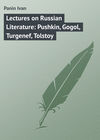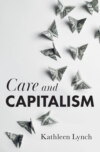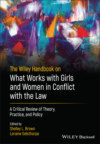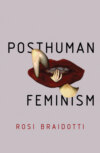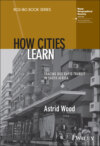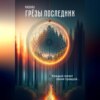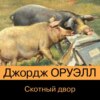Читать книгу: «Lectures on Russian Literature: Pushkin, Gogol, Turgenef, Tolstoy», страница 2
“The wheels whirl faster and faster. From the backs of Vasili and Philip, who is flourishing his reins, I perceive that they are afraid. The britchka rolls swiftly down the hill, and thunders over the bridge of planks. I am afraid to move, and momentarily await our universal destruction.
“Tpru! the trace is broken, and in spite of the unceasing, deafening claps of thunder, we are forced to halt upon the bridge.
“I lean my head against the side of the britchka, and, catching my breath with a sinking of the heart, I listen despairingly to the movements of Philip's fat black fingers, as he slowly ties a knot, and straightens out the traces, and strikes the side horse with palm and whip-handle.
“The uneasy feelings of sadness and terror increase within me with the force of the storm; but when the grand moment of silence arrives, which generally precedes the thunder-clap, these feelings had reached such a point, that, if this state of things had lasted a quarter of an hour, I am convinced that I should have died of excitement. At the same moment, there appears from beneath the bridge a human form, clothed in a dirty, ragged shirt, with a bloated senseless face, a shaven, wagging, totally uncovered head, crooked, nerveless legs, and a shining red stump in place of a hand, which he thrusts out directly at the britchka.
“‘Ba-a-schka!1 Help-a-cripple-for-Christ's-sake!’ says the beggar, beginning to repeat his petition by rote, in a weak voice, as he crosses himself at every word, and bows to his very belt.
“I cannot describe the feeling of chill terror which took possession of my soul at that moment. A shudder ran through my hair, and my eyes were riveted on the beggar, in a stupor of fright.
“Vasili, who bestows the alms on the journey, is giving Philip directions how to strengthen the trace; and it is only when all is ready, and Philip, gathering up the reins, climbs upon the box, that he begins to draw something from his side pocket. But we have no sooner started than a dazzling flash of lightning, which fills the whole ravine for a moment with its fiery glare, brings the horses to a stand, and is accompanied, without the slightest interval, by such a deafening clap of thunder that it seems as though the whole vault of heaven were falling in ruins upon us. The wind increases; the manes and tails of the horses, Vasili's cloak, and the edges of the apron, take one direction, and flutter wildly in the bursts of the raging gale. A great drop of rain fell heavily upon the leather hood of the britchka, then a second, a third, a fourth; and all at once it beat upon us like a drum, and the whole landscape resounded with the regular murmur of falling rain. I perceive, from the movement of Vasili's elbow, that he is untying his purse; the beggar, still crossing himself and bowing, runs close to the wheel, so that it seems as if he would be crushed. ‘Give-for-Christ's-sake!’ At last a copper groschen flies past us, and the wretched creature halts with surprise in the middle of the road; his smock, wet through and through, and clinging to his lean limbs, flutters in the gale, and he disappears from our sight.
“The slanting rain, driving before a strong wind, poured down as from a bucket; streams trickled from Vasili's frieze back into the puddle of dirty water which had collected on the apron. The dust, which at first had been beaten into pellets, was converted into liquid mud, through which the wheels splashed; the jolts became fewer, and turbid brooks flowed in the ruts. The lightning-flashes grew broader and paler; the thunder-claps were no longer so startling after the uniform sound of the rain.
“Now the rain grows less violent; the thunder-cloud begins to disperse; light appears in the place where the sun should be, and a scrap of clear azure is almost visible through the grayish-white edges of the cloud. A moment more, and a timid ray of sunlight gleams in the pools along the road, upon the sheets of fine, perpendicular rain which fall as if through a sieve, and upon the shining, newly washed verdure of the wayside grass.
“The black thunder-cloud overspreads the opposite portion of the sky in equally threatening fashion, but I no longer fear it. I experience an inexpressibly joyous feeling of hope in life; which has quickly taken the place of my oppressive sensation of fear. My soul smiles, like Nature, refreshed and enlivened.”
24. And for modesty, too, the literatures of England and Russia furnish instructive comparisons. Russia has no autobiographies of note. Men there were too busy with their art to have much time left to think of themselves. Turgenef writes Reminiscences, but only of others, and not of himself; and when he speaks of his own past, it is only incidentally, and with the delicacy of a maiden. Tolstoy gives, indeed, an autobiography as sincere as Rousseau's and as earnest as Mill's, but only because he believes that an account of the spiritual struggles he went through would be helpful to other strugglers with the terrible problems of life. But of their personal history there is seldom more than a trace found. Compare with this the autobiographies of Gibbon, Leigh Hunt, Mill, or even the Reminiscences of Carlyle, and the widely-branching outpourings of Ruskin in his autobiographical sketches. Not that the English over-estimate their own worth and importance, but the Russians seem to have the instinctive sense of measure in personal matters.
25. Much of this purity of taste is due to a singular circumstance in its literary history. Unlike other countries, in Russia, for a long time, literature has been the favorite solely of the educated and wealthy classes. Almost all the great names of Russian literature, Pushkin, Lermontof, Hertzen, Turgenef, Zhukofsky, Griboyedof, Karamzin, Tolstoy, were aristocrats, if not always by birth, at least by surroundings. The men of letters sprung from the people, nourished by the people, living among the people, the Burnses, the Bérangers, the Heines are unknown in Russia. I have already stated that originality must not be looked for on Russian soil; that Russian literature is essentially an imitative literature in its forms, hence imitative force must have time to look about, examine, copy, and for this leisure, wealth is necessary.
26. This absence of originality has thus proved a source of blessing to Russian literature which well-nigh makes up the loss. For literature thus being in the hands of men of leisure, free from the struggle for bread, was never governed in Russia by the law of supply and demand, and the dollar never became, as with us, the potent, even though the temporary arbiter of its destinies. Hence the singular purity of Russian literature in point of style. Dickens needs the dollars, and he therefore spins out his satires to a length of distance to be traversed only by seven-league boots, and in verbosity is equalled only by Thackeray. Gogol, however, not only compresses his chapters, but even burns the whole second part of his masterpiece, “Dead Souls,” as unworthy of his best art. George Eliot, writing for a standard which requires three volumes for each novel, must fill her story with all manner of description which does not describe, and reflection which does not reflect; but Turgenef files and files until he is reproached more for omitting too much than for adding too much. And America's greatest living writer (I say greatest, because he is purest in spirit, gentlest in heart, and freest in mind) can still go on from year to year producing one novel annually with the regularity of a baker's muffin at breakfast. Compare with this his own master, Tolstoy, who for months forsakes his masterpiece, “Anna Karenina,” because of a fastidious taste! Hence the question why Mrs. Astor never invites to her table literary men, which agitated them recently, could not have even been asked in Russia. Such a question is only possible in a country where the first question a publisher puts of a book is not whether it is good, but whether it is likely to pay.
27. Faithfulness of labor and finish of form are therefore characteristic of whatever has any reputation in Russia; and as works of art, there are few works of the Russian masters that are not veritable masterpieces. I say this with confidence of Turgenef, Tolstoy, Gogol, and Pushkin; but I think this remark would hold even of the lesser lights of Russian literature. A sincerity, a truthfulness, a realness, is thus found in Russian literature, which makes it be a thing of beauty instead of doing some deeds of beauty. On reading “Uncle Tom's Cabin,” you involuntarily ask, “What effect has this book had on slavery in America?” On reading Turgenef's Memoirs of a Sportsman, though it accomplished as much for the serf, you no longer ask, “What has the book done for the serf?” You do not think of the serf any more now that he has ceased to be. But you do think of the innumerable things of beauty that roll out from his pages before you as if from a kaleidoscope. And if to be is greater than to do, then Russian literature is truly original, even though its forms be borrowed; since instead of seeming it is, and whatever truly is, is original.
28. From this sincerity of Russian writers comes the third great virtue of Russian literature, a virtue possessed as yet by other literatures in but a small degree. The Russian writer is first of all in earnest, and he has no time to give to mere entertainment, mere amusement. The Goldsmiths with their Bees and their Citizens of the World, the Addisons with their Spectators, nobly writ though these be, yet written mostly with no higher purpose than to make the breakfast-roll glide down the throat more softly, – these exist not in Russia. Things of beauty, things of entertainment, like Addison's Essays, are indeed found in Russia; but not for entertainment alone were these writ, hence not in the strain of mirth. Rather are they writ with the blood of the heart; for to the Russian, “Life is real, life is earnest,” not a mere pastime, and it was given to a Russian painter to make the all-known but singularly-forgotten observation that Christ never – laughed!
29. But while the native endowment of the soul, its spiritual capital, is the chief guide of the fate of literature, other forces also affect its course, the chief among which is the political government of the people. In most countries the influence of government upon literature has been slight. Shakespeare's plays, Milton's Paradise, were not affected by the political struggles of England. The sole writing of Milton which was affected by English politics, his prose, belongs to literature only in so far as it throws light on the author of Paradise Lost. Dante's Divine Comedy, charged though it be with the political electricity of his times, was but little affected by the state of government. In other countries the government of the people was as much itself an effect of the native endowment of the soul as its literature; and government and literature flowed therefore side by side, in two parallel streams, seldom interfering with each other's course. In Russia, however, government has extended a powerful influence on literature, and the most marked effect of its influence is the short-livedness of most Russian authors. The calm, peaceful existence of the literary man has already been sung by Carlyle as a life-lengthener. In Russia, however, the same fatality which has pursued its political rulers has also pursued its spiritual rulers; and as most conquerors have died an unnatural death, so most writers have died an unnatural death, or only after an unnatural life. The witticism of Mark Twain, that the bed must be a most fatal place, since most people die in bed, is not applicable to Russian emperors and Russian writers. Few of them can be said to have died in their beds. Griboyedof is assassinated; Pushkin and Lermontof are murdered; Gogol is found dead from bodily starvation, and Byelinsky is found dead from spiritual starvation; Batushkof dies insane; Dostoyefsky and Chernishefsky are in prison the best years of their lives; Turgenef can find the length of his days only in exile, and Tolstoy the length of his in ploughing fields. For such a strange disharmony in the lives of Russian men of letters, the government is largely responsible. An autocracy which feels itself called to wrap literature tightly in swaddling-clothes, and establishes a censorship which does not shrink even from making verbal changes in the works of the artist to improve his style, can accomplish little more than the shortening of literary lives. For literature is a flower which can only wither at the touch of unhallowed hands, and the rude hands of the censor are far from being hallowed.
30. Hence Russian literature not only is a mere fragment, a mere brick of the vast edifice which it is capable of becoming; it is even bound to remain a mere fragment for a long time to come. For as Socrates lived in Plato, Plato in Aristotle, and Aristotle in the Schoolmen, as Lessing lived in Goethe, Goethe in Heine, and Heine in young Germany, so great literary fathers reappear in the progeny of the next generation; the reproduction is indeed oft puny enough, still the reproduction is there. But in Russia, while Pushkin lived in Gogol, and Gogol in Turgenef, the generation which was to inherit the kingdom left by Turgenef and Tolstoy is now buried in fortresses and dungeons. And as in America mammon has so eaten away literary aspiration as to leave Emerson and Hawthorne, Prescott and Motley, intellectually childless, so in Russia, autocracy has so eaten away the literary material as to leave the great masters childless.
31. Fortunately, though deprived by despotism of all power of propagation on Russian soil, the noble spirit of Russian literature has by a force I cannot but call divine been allowed to be propagated on foreign soil; and if the literature of the west, which is now stagnating in the pools of doubt, irreverence, mammon, and cold intellectualism, misnamed culture, is to be purified, the purification must come from the breath of Life which blows from Russia. This is the true meaning of the present craze for Russian authors. There is a force in them which the mass instinctively recognizes as divine; it feels for it, gropes for it, and the Devil, as usual, is the first to seize for his purposes whatever noble impulse comes over men, and this search for the divine of the mass becomes a sham, a fashionable craze. Hence the rage, the boom. This is the inevitable stage of falsehood through which every noble aspiration must pass. By and by the stage of truth must come, and come it shall, in due time. Russian authors will then be read not because it is the fashion and the craze, but because they have a message from the very heavens to deliver unto him that hath eyes to see and ears to hear: the message of sincerity, the message of earnestness, the message of love. Then will have been reached the stage of truth.
32. Out of this crampedness of Russian literature by government developed that virtue of its masters, which with their sincerity and simplicity, or moderation, forms a most beautiful trinity of graces; I mean their freedom. You will indeed hear full many a yard-stick critic as he goes about with his load of pigeon-holed boxes to take measure of each author, and label him, and duly relegate him to convenient pigeon-hole, – such critic you will hear discourse much about classicism, and romanticism, and realism, and of their prevalence at different times in Russian literature. Believe it not! The Russian author who is at all worth classifying is slave of no school; he is free, for he is a worshipper of the truth which alone maketh men free, he is a school unto himself. Is Gogol a realist? He gives you indeed the reality, but he breathes into it a beauty only visible to idealizing eyes. Is Turgenef a realist? When thrilled with the unspeakable beauty of the sky, he depicts it so as to realize for you the ideal. And when Tolstoy is thrilled with a moral emotion, he depicts it so as to idealize the real for you. The Russians thus refuse to be classified. And they belong to only one class, – the class of those that cannot be classified.
33. Thus has it come to pass that the west, to which Russian literature owes its nourishment, is now in its old age to be nourished by its foster child. The child is to become the father of the man; and Russian literature is henceforth to be the source of the regeneration of the western spirit. As the future fighters for freedom will have to look to the Perofskayas, to the Bardines, and the Zassulitshes, and to the unnamed countless victims of the Siberian snow-fields for models of heroism, so methinks henceforth writers must look to the Russians for models in their art: to Gogol for pure humor, to Turgenef for the worship of natural beauty, to Tolstoy for the worship of moral beauty.
LECTURE II.
PUSHKIN
1. I have stated in the first lecture that I should treat of Pushkin as the singer. Pushkin has indeed done much besides singing. He has written not only lyrics and ballads but also tales: tales in prose and tales in verse; he has written novels, a drama, and even a history. He has thus roamed far and wide, still he is only a singer. And even a cursory glance at his works is enough to show the place which belongs to him. I say belongs, because the place he holds has a prominence out of proportion to the merits of the writer. Among the blind the one-eyed is king, and the one-eyed Pushkin – for the moral eye is totally lacking in this man – came when there as yet was no genuine song in Russia, but mere noise, reverberation of sounding brass; and Pushkin was hailed as the voice of voices, because amidst the universal din his was at least clear. Of his most ambitious works, “Boris Godunof” is not a drama, with a central idea struggling in the breast of the poet for embodiment in art, but merely a series of well-painted pictures, and painted not for the soul, but only for the eye. His “Eugene Onyegin” contains many fine verses, much wit, much biting satire, much bitter scorn, but no indignation burning out of the righteous heart. His satire makes you smile, but fails to rouse you to indignation. In his “Onyegin,” Pushkin often pleases you, but he never stirs you. Pushkin is in literature what the polished club-man is in society. In society the man who can repeat the most bon-mots, tell the most amusing anecdotes, and talk most fluently, holds the ear more closely than he that speaks from the heart. So Pushkin holds his place in literature because he is brilliant, because his verse is polished, his language chosen, his wit pointed, his prick stinging. But he has no aspiration, no hope; he has none of the elements which make the writings of the truly great helpful. Pushkin, in short, has nothing to give. Since to be able to give one must have, and Pushkin was a spiritual pauper.
2. And what is true of his more sustained works, is equally true of his lesser works. They all bear the mark of having come from the surface, and not from the depths. His “Prisoner of the Caucasus,” his “Fountain of Bachtshisarai,” his “Gypsies,” are moreover weighted down with the additional load of having been written directly under the influence of Byron. And as health is sufficient unto itself and it is only disease which is contagious, Byron, who was sick at heart himself, could only impart disease and not health. Byron moreover had besides his gift of song the element of moral indignation against corrupt surroundings. Pushkin had not even this redeeming feature.
3. Pushkin therefore is not a poet, but only a singer; for he is not a maker, a creator. There is not a single idea any of his works can be said to stand for. His is merely a skill. No idea circulates in his blood giving him no rest until embodied in artistic form. His is merely a skill struggling for utterance because there is more of it than he can hold. Pushkin has thus nothing to give you to carry away. All he gives is pleasure, and the pleasure he gives is not that got by the hungry from a draught of nourishing milk, but that got by the satiated from a draught of intoxicating wine. He is the exponent of beauty solely, without reference to an ultimate end. Gogol uses his sense of beauty and creative impulse to protest against corruption, to give vent to his moral indignation; Turgenef uses his sense of beauty as a weapon with which to fight his mortal enemy, mankind's deadly foe; and Tolstoy uses his sense of beauty to preach the ever-needed gospel of love. But Pushkin uses his sense of beauty merely to give it expression. He sings indeed like a siren, but he sings without purpose. Hence, though he is the greatest versifier of Russia, – not poet, observe! – he is among the least of its writers.
4. Towards the end of his early extinguished life he showed, indeed, signs of better things. In his “Captain's Daughter” he depicts a heroic simplicity, the sight of which is truly refreshing, and here Pushkin becomes truly noble. As a thing of purity, as a thing of calmness, as a thing of beauty, in short, the “Captain's Daughter” stands unsurpassed either in Russia or out of Russia. Only Goldsmith's “Vicar of Wakefield,” Gogol's “Taras Bulba,” and the Swiss clergyman's “Broom Merchant,” can be worthily placed by its side. But this nobility is of the lowly, humble kind, to be indeed thankful for as all nobility must be, whether it be that of the honest farmer who tills the soil in silence, or that of the gentle Longfellow who cultivates his modest muse in equal quietness. But there is the nobility of the nightingale and the nobility of the eagle; there is the nobility of the lamb and the nobility of the lion; and beside the titanesqueness of Gogol, and Turgenef, and Tolstoy, the nobility of Pushkin, though high enough on its own plane, is relatively low.
5. Mere singer then that Pushkin is, he is accordingly at his best only in his lyrics. But the essence of a lyric is music, and the essence of music is harmony, and the essence of harmony is form; hence in beauty of form Pushkin is unsurpassed, and among singers he is peerless. His soul is a veritable Æolian harp. No sooner does the wind begin to blow than his soul is filled with music. His grace is only equalled by that of Heine, his ease by that of Goethe, and his melody by that of Tennyson. I have already said that Pushkin is not an eagle soaring in the heavens, but he is a nightingale perched singing on the tree. But this very perfection of form makes his lyrics well-nigh untranslatable, and their highest beauty can only be felt by those who can read them in the original.
6. In endeavoring therefore to present Pushkin to you, I shall present to you not the nine tenths of his works which were written only by his hands, – his dramas, his tales, his romances, whether in prose or verse, – but the one tithe of his works which was writ from his heart. For Pushkin was essentially a lyric singer, and whatever comes from this side of his being is truly original; all else, engrafted upon him as it is from without, either from ambition or from imitation, cannot be called his writing, that which he alone and none others had to deliver himself of. What message Pushkin had to deliver at all to his fellow-men is therefore found in his lyrics.
7. Before proceeding, however, to look at this singer Pushkin, it is necessary to establish a standard by which his attainment is to be judged. And that we may ascertain how closely Pushkin approaches the highest, I venture to read to you the following poem, as the highest flight which the human soul is capable of taking heavenward on the wings of song.
HYMN TO FORCE
BY WM. R. THAYER
I am eternal!
I throb through the ages;
I am the Master
Of each of Life's stages.
I quicken the blood
Of the mate-craving lover;
The age-frozen heart
With daisies I cover.
Down through the ether
I hurl constellations;
Up from their earth-bed
I wake the carnations.
I laugh in the flame
As I kindle and fan it;
I crawl in the worm;
I leap in the planet.
Forth from its cradle
I pilot the river;
In lightning and earthquake
I flash and I quiver.
My breath is the wind;
My bosom the ocean;
My form's undefined;
My essence is motion.
The braggarts of science
Would weigh and divide me;
Their wisdom evading,
I vanish and hide me.
My glances are rays
From stars emanating;
My voice through the spheres
Is sound, undulating.
I am the monarch
Uniting all matter:
The atoms I gather;
The atoms I scatter.
I pulse with the tides —
Now hither, now thither;
I grant the tree sap;
I bid the bud wither.
I always am present,
Yet nothing can bind me;
Like thought evanescent,
They lose me who find me.
8. I consider a poem of this kind (and I regret that there are very few such in any language) to stand at the very summit of poetic aspiration. For not only is it perfect in form, and is thus a thing of beauty made by the hands of man, but its subject is of the very highest, since it is a hymn, a praise of God, even though the name of the Most High be not there. For what is heaven? Heaven is a state where the fellowship of man with man is such as to leave no room for want to the one while there is abundance to the other. Heaven is a state where the wants of the individual are so cared for that he needs the help of none. But if there be no longer any need of toiling, neither for neighbor nor for self, what is there left for the soul to do but to praise God and glorify creation? A hymn like the above, then, is the outflow of a spirit which hath a heavenly peace. And this is precisely the occupation with which the imagination endows the angels; the highest flight of the soul is therefore that in which it is so divested of the interests of the earth as to be filled only with reverence and worship. And this hymn to Force seems to me to have come from a spirit which, at the time of its writing at least, attained such freedom from the earthly.
9. Such a poem being then at one end of the scale, the highest because it gratifies the soul's highest need, on the opposite end, on the lowest, is found that which gratifies the soul's lowest need, its need for novelty, its curiosity. And this is done by purely narrative writing, of which the following is a good example: —
THE BLACK SHAWL
I gaze demented on the black shawl,
And my cold soul is torn by grief.
When young I was and full of trust
I passionately loved a young Greek girl.
The charming maid, she fondled me,
But soon I lived the black day to see.
Once as were gathered my jolly guests,
A detested Jew knocked at my door.
Thou art feasting, he whispered, with friends,
But betrayed thou art by thy Greek maid.
Moneys I gave him and curses,
And called my servant, the faithful.
We went; I flew on the wings of my steed,
And tender mercy was silent in me.
Her threshold no sooner I espied,
Dark grew my eyes, and my strength departed.
The distant chamber I enter alone —
An Armenian embraces my faithless maid.
Darkness around me: flashed the dagger;
To interrupt his kiss the wretch had no time.
And long I trampled the headless corpse, —
And silent and pale at the maid I stared.
I remember her prayers, her flowing blood,
But perished the girl, and with her my love.
The shawl I took from the head now dead,
And wiped in silence the bleeding steel.
When came the darkness of eve, my serf
Threw their bodies into the billows of the Danube.
Since then I kiss no charming eyes,
Since then I know no cheerful days.
I gaze demented on the black shawl,
And my cold soul is torn by grief.
10. The purpose of the author here was only to tell a story; and as success is to be measured by the ability of a writer to adapt his means to his ends, it must be acknowledged that Pushkin is here eminently successful. For the story is here well told; well told because simply told; the narrative moves, uninterrupted by excursions into side-fields. In its class therefore this poem must stand high, but it is of the lowest class.
11. For well told though this story be, it is after all only a story, with no higher purpose than merely to gratify curiosity, than merely to amuse. Its art has no higher purpose than to copy faithfully the event, than to be a faithful photograph; and moreover it is the story not of an emotion, but of a passion, and an ignoble passion at that; the passion is jealousy, – in itself an ugly thing, and the fruit of this ugly thing is a still uglier thing, – a murder. The subject therefore is not a thing of beauty, and methinks that the sole business of art is first of all to deal with things of beauty. Mediocrity, meanness, ugliness, are fit subjects for art only when they can be made to serve a higher purpose, just as the sole reason for tasting wormwood is the improvement of health. But this higher purpose is here wanting. Hence I place such a poem on the lowest plane of art.
THE OUTCAST
On a rainy autumn evening
Into desert places went a maid;
And the secret fruit of unhappy love
In her trembling hands she held.
All was still: the woods and the hills
Asleep in the darkness of the night;
And her searching glances
In terror about she cast.
And on this babe, the innocent,
Her glance she paused with a sigh:
“Asleep thou art, my child, my grief,
Thou knowest not my sadness.
Thine eyes will ope, and though with longing,
To my breast shalt no more cling.
No kiss for thee to-morrow
From thine unhappy mother.
Beckon in vain for her thou wilt,
My everlasting shame, my guilt!
Me forget thou shalt for aye,
But thee forget shall not I;
Shelter thou shalt receive from strangers;
Who'll say: Thou art none of ours!
Thou wilt ask: Where are my parents?
But for thee no kin is found.
Hapless one! with heart filled with sorrow,
Lonely amid thy mates,
Thy spirit sullen to the end
Thou shalt behold the fondling mothers.
A lonely wanderer everywhere,
Cursing thy fate at all times,
Thou the bitter reproach shalt hear …
Forgive me, oh, forgive me then!
Asleep! let me then, O hapless one,
To my bosom press thee once for all;
A law unjust and terrible
Thee and me to sorrow dooms.
While the years have not yet chased
The guiltless joy of thy days,
Sleep, my darling; let no bitter griefs
Mar thy childhood's quiet life!”
But lo, behind the woods, near by,
The moon brings a hut to light.
Forlorn, pale, trembling
To the doors she came nigh;
She stooped, and gently laid down
The babe on the strange threshold.
In terror away she turned her eyes
And disappeared in the darkness of the night.
12. This also is a narrative poem; but it tells something more than a story. A new element is here added. For it not only gratifies our curiosity about the mother and the babe, but it also moves us. And it moves not our low passion, but it stirs our high emotion. Not our anger is here roused, as against the owner of the black shawl, but our pity is stirred for the innocent babe; and even the mother, though guilty enough, stirs our hearts. Here, too, as in the “Black Shawl,” the art of the narrator is perfect. The few touches of description are given only in so far as they vivify the scene and furnish a fit background for the mother and child. But the theme is already of a higher order, and in rank I therefore place the “Outcast” one plane above the “Black Shawl.”

